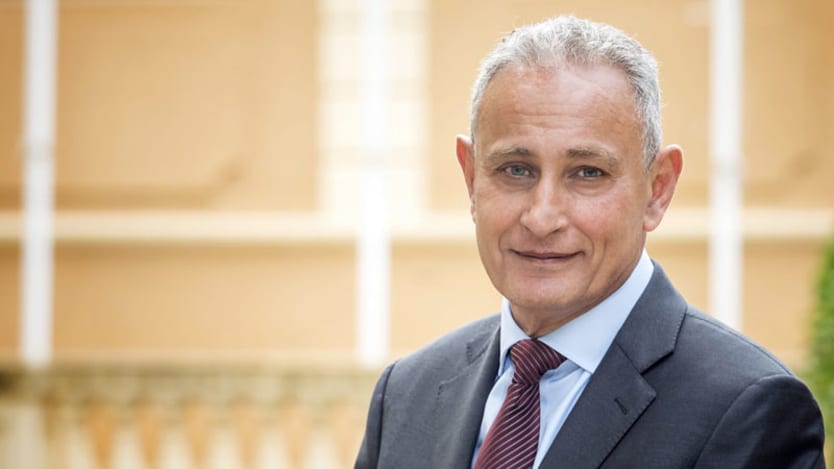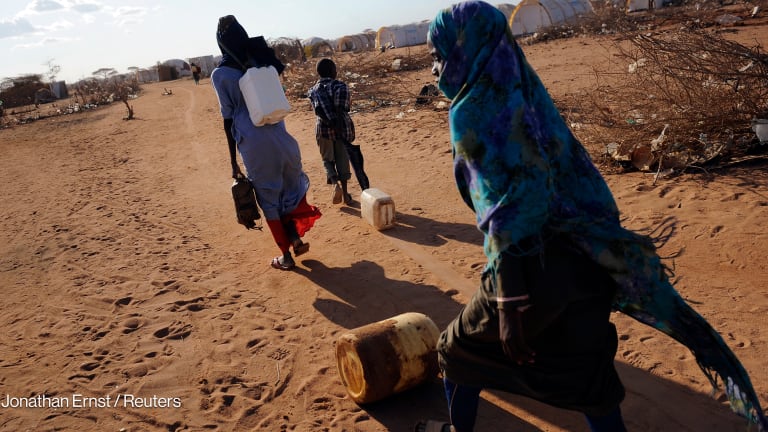
BARCELONA — Isolationist attitudes have the power to halt the progress of sustainable development efforts, said Nasser Kamel, secretary general of the Union for the Mediterranean, an intergovernmental Euro-Mediterranean organization, which encourages regional cooperation on issues such as climate, employment, and education, alongside human development.
“Any ideology, policy, or even rhetoric that is isolationist in its approach is definitely influential to whatever it is we're trying to do ... yes, they do affect sustainable development.”
— Nasser Kamel, secretary general of the Union for the MediterraneanFor Nasser, isolationist policies or rhetoric have an effect on sustainable development — but he added that it is possible to change such attitudes.
“All we need to do is amplify the benefits of that globalized world and minimize the downturns and the negative side effects.”
UfM takes the combined views of its 43 members — which include Syria, Turkey, and Palestine — and presents them at government level to incite action.
Speaking to Devex at the Barcelona Centre for International Affairs, Nasser explained how you galvanize political will around a topic and change those attitudes that could be detrimental to longer-term Sustainable Development Goal success.
The interview has been edited for length and clarity.
How is UfM helping to advance progress in terms of sustainable development?
We’re not a development agency or even a development bank, but we use our political leverage as the entity representing the political will of 43 member states who have decided together that this project is relevant and important for the overall development of a country or a number of countries in the region.
We go and leverage that political capital with organizations like the International Finance Corporation and development agencies — the U.K.’s Department for International Development, the Swedish International Development Cooperation Agency, and Germany’s GIZ.
The real value added is about best practices and people being able to learn from each other because we’ve always been working within our own national context. When we create synergies and best practices, we help foster an environment that is more effective and dynamic in terms of dealing with the challenges.
How do you kind of galvanize that political will?
The process starts first with the stakeholders — civil society, entrepreneurs, companies, syndicates, academia — coming together and looking into the challenges.
For example, water is one of the most challenging issues in the Mediterranean today. We create a consensus on a regional basis on specific challenges that we're all facing together and then I take it to the next level — government at the regional basis — and then we get into strategy, plans, and agreements at the regional level and then go back to the implementation.
It's really co-ownership, co-decision, equal footing and that makes it easier for people to be engaged. They won't feel coerced into taking certain action or implementing certain policy.
In the six months that you've been in this role, what are the biggest lessons you've learned?
In a world where groupings are forming, very strong influential groupings in the Americas, in Asia etc., all of Europe, the Mediterranean, and even beyond to Africa are bound or — dare I even say — doomed to work together.
Some are open to this and some aren't. But I’m quite optimistic because when you look at the European Union today — for example, what they’re doing with the EU External Investment Plan — and when I talk to politicians in Europe, I think reasonable, mature politicians understand what needs to be done.
How could some of those attitudes you mentioned affect sustainable development?
Any ideology, policy, or even rhetoric that is isolationist in its approach is definitely influential to whatever it is we're trying to do, but yes they do affect sustainable development. But will they stop the train? They won't because we live in a globalized world whether we like it or not — I happen to like it. And nobody will be able to stop that train.
All we need to do is amplify the benefits of that globalized world and minimize the downturns and the negative side effects. That's why you see some segment of society taking a defensive, aggressive approach by minimizing the effect, by adopting socially inclusive policies, by dealing with the most vulnerable segment of our population, by having a responsible approach to dealing with real concerns and not only stigmatizing them by saying “you are racist,” but by trying to understand.
“We cannot live on an island of prosperity in a sea of deprivation. That is not a formula for world peace and stability.”
—When you study the issue of extremism in the Middle East and North Africa or the issue of populism in Europe, in most of the cases, you'll see deep-rooted socioeconomic and employment issues are at play.
Do you think it's possible to change some of those attitudes?
By doing more, yes, in terms of socioeconomic development, synergy, population development, cultural activity, education, and student mobility to teach us about you and teach you about us.
By knowing more about the other, yes.
The culture dimension in sustainable development issue is extremely important here. The anthropology of development, but also explaining to the largest possible audience that development is co-beneficial is extremely important. This is the only way forward for humanity, not only for our regions. We cannot live on an island of prosperity in a sea of deprivation. That is not a formula for world peace and stability.








